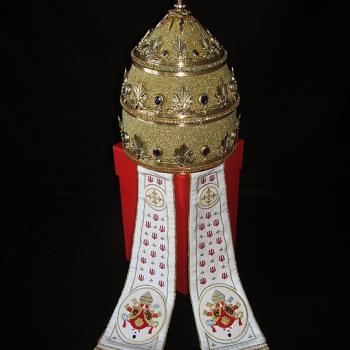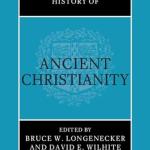
The Assumption of Mary and the Ascension of Jesus are two events that hold immense spiritual significance for Christians. While Mary’s Assumption focuses on the belief that Mary, the mother of Jesus, was taken bodily into heaven, Jesus’ Ascension refers to His ascent into heaven after His resurrection. These events are celebrated and revered in various Christian traditions, each with their own interpretations and beliefs.
In this article, we will delve into the definitions and beliefs of, as well as the similarities and differences between, the Assumption of Mary and the Ascension of Jesus. We will also explore their significance in Christian theology.
Examining Mary’s Assumption
The Assumption of Mary refers to the belief that after her earthly life, Mary was assumed, body and soul, into heaven. Although the Assumption is not explicitly mentioned in the Bible, a description of the event appears in the extracanonical “The Account of St. John the Theologian of the Falling Asleep of the Holy Mother of God.” As such, it has been widely accepted and celebrated within the Catholic Church and some Orthodox Christian traditions.
According to Catholic doctrine, Mary’s Assumption is seen as the culmination of her unique role as the Mother of God and her sinless nature. This event is considered a testament to her special relationship with Jesus and her significant role in salvation’s history.
In the Catholic Church, the Assumption of Mary is celebrated on August 15th each year, on a day known as the Feast of the Assumption. It is a holy day of obligation, in which Catholics are required to attend Mass and honor Mary’s Assumption into heaven. The feast is marked by processions, prayers, and devotions dedicated to Mary. In some cultures, flowers and herbs are blessed on this day to symbolize Mary’s purity and beauty.
What Is the Ascension of Jesus?
The Ascension of Jesus refers to the belief that after His resurrection, Jesus physically ascended into heaven before the eyes of His disciples. This event is described in the New Testament, specifically in the books of Luke and Acts. According to Christian belief, the Ascension signifies Jesus’ exaltation and His return to the Father in heaven, where He now reigns as Lord and Savior.
The Ascension of Jesus holds great importance in Christian theology as it marks the completion of Jesus’ earthly mission and the beginning of His eternal reign. It also serves as a promise and hope for believers, assuring us of our own future resurrection and the ultimate reunion with Christ in heaven.
Similarities Between the Assumption of Mary and the Ascension of Jesus
Although the Assumption of Mary and the Ascension of Jesus are distinct events, they share some similarities in their theological significance. First, both events involve a physical ascent into heaven. As such, both affirm the belief in the resurrection of the body and the promise of eternal life.
Second, both events highlight the special role of Mary and her relationship with Jesus. Mary, as the mother of Jesus, played an integral part in His life and ministry. The belief in her Assumption into heaven further emphasizes her unique position as the Mother of God’s Son. Or, as the Catholics believe, as the Mother of God. Similarly, Jesus’ Ascension demonstrates His divine nature and His authority as the Son of God.
Finally, both the Assumption and the Ascension hold deep spiritual significance for believers. They serve as a source of inspiration, hope, and encouragement. The Assumption reminds believers of the possibility of sharing in the glory of heaven (see Romans 8:17-18), while the Ascension assures us of the promise of eternal life through faith in Jesus Christ.
Differences between the Assumption of Mary and the Ascension of Jesus
While there are similarities between the Assumption of Mary and the Ascension of Jesus, there are also notable differences that make these events distinctive. First, the Assumption of Mary is not explicitly mentioned in the Bible, whereas the Ascension of Jesus is described in detail in the New Testament. The accounts of Jesus’ Ascension provide specific details regarding the time, place, and witnesses of the event. As mentioned above, the Ascension of Jesus appears in the canonical books of Scripture, while the Assumption of Mary is only mentioned extracanonically. Therefore, it is more difficult to confirm the veracity of the account.
Second, in the case of Mary’s Assumption, her dead, or dying, body (which was said to be uncorrupted by decay) was taken up into heaven. However, no one actually saw this take place. They just assumed it had because the angels in Mary’s tomb stopped singing. Jesus, as we know, ascended into heaven fully alive and well in his new, glorified body. And all His disciples witnessed this and talked about it for decades afterward. This is why we hope in Jesus. He is the only one who has ever been able to say:
“I am the resurrection and the life. The one who believes in Me will live, even though they die; and whoever lives by believing in Me will never die. Do you believe this?” (John 11:25-26, NIV)
Finally, the Assumption and the Ascension differ in terms of the existing historical and theological views about the events. Belief in the Assumption of Mary is held chiefly within the Catholic Church and some Orthodox Christian traditions. It has long been a subject of theological discussion and debate, with questions arising about its scriptural basis and exact timing. For this reason, the Assumption of Mary is not a universally accepted doctrine, and especially some Protestant denominations do not hold to this belief. On the other hand, the Ascension of Jesus is accepted by a broader range of Christian denominations, without any significant underlying controversy.
Significance of the Assumption of Mary and the Ascension of Jesus to Christian Theology
Both the Assumption of Mary and the Ascension of Jesus hold immense significance in Christian theology. These events affirm the resurrection of the body, the promise of eternal life, and the exaltation of Jesus as the Son of the One True God. These events remind believers of the hope we have in Christ and the assurance of our future glorification.
The Assumption of Mary emphasizes the unique role of Mary as the chosen vessel of God through which His redemptive work was ushered into the world by way of the body of Jesus Christ. It also highlights the dignity and honor accorded to Mary as the “highly favored” one of God (see Luke 1:28). The Assumption serves as a source of inspiration for believers, encouraging us to strive for holiness, faithfulness, and devotion to God.
The Ascension of Jesus, on the other hand, signifies Jesus’ victory over sin and death, His return to the Father, and His ongoing intercession for believers. It reassures us of our union with Christ and our future resurrection. The Ascension also points to the Church’s mission to proclaim the gospel and make disciples of all nations, as Jesus entrusted His followers with this task before ascending into heaven (see Acts 1:7-8).
Celebrations and Traditions Associated with the Assumption of Mary and the Ascension of Jesus
The Assumption of Mary and the Ascension of Jesus are celebrated and commemorated in various ways within different Christian traditions. The Feast of the Assumption is marked by special Masses, processions, and devotions dedicated to Mary. It is a time for believers to express our gratitude toward Mary and the role she played in God’s plan of salvation, as well as to reflect on the example of faith she represents for us.
The Ascension of Jesus is celebrated on Ascension Thursday, forty days after Easter Sunday. It is a significant day in the liturgical calendar and is observed with special church services and prayers. Some Christian traditions also hold processions or reenactments of Jesus’ Ascension, symbolizing His departure from earth and His return to heaven.
These celebrations and traditions serve as reminders of the spiritual truths and theological significance of Mary’s Assumption and Jesus’ Ascension. They provide opportunities for believers to deepen our faith, reflect on the mysteries of God’s work, and unite with fellow Christians in worship and praise.
How Different Christian Denominations Interpret the Assumption of Mary and the Ascension of Jesus
The Assumption of Mary and the Ascension of Jesus are understood and interpreted differently across various Christian denominations. While the Catholic Church and some Orthodox traditions hold the Assumption as a well-defined doctrine, not all Christian denominations share this point of view. Some Protestant and most Evangelical denominations, for instance, do not have an official dogma regarding the Assumption and approach the topic with varying degrees of acceptance or skepticism.
Conversely, the Ascension of Jesus is generally accepted by a wide range of Christian denominations, although there may be differences in emphasis and interpretation. Some traditions focus on the theological significance of Jesus’ exaltation and His ongoing role as the King of Kings and Lord of Lords. Others emphasize the missional aspect of the Ascension, highlighting the call for believers to continue Christ’s work in the world.
Overall, the interpretations of the Assumption of Mary and the Ascension of Jesus vary based on theological perspectives, scriptural interpretation, and historical traditions within each Christian denomination.
Exploring Theological and Historical Debates Surrounding the Assumption of Mary and the Ascension of Jesus
The Assumption of Mary and the Ascension of Jesus have both been subjects of theological and historical debates throughout the centuries. The Assumption, in particular, has sparked discussions regarding its scriptural basis, historical development, and theological implications. Some theologians argue that the Assumption finds its roots in early Christian beliefs and traditions, while others question its historical authenticity and view it as a later development.
The Ascension of Jesus, although generally accepted among Christian traditions, has also raised questions regarding its nature and significance. Theologians have debated whether the Ascension should be understood as a literal bodily ascent or as a symbolic representation of Jesus’ exaltation. Some interpretations emphasize the theological meaning of the event, while others seek to reconcile the biblical accounts with scientific understandings of the universe.
These debates and discussions surrounding the Assumption of Mary and the Ascension of Jesus reflect the ongoing quest for understanding and interpretations of the mysteries of faith. They invite Christians to engage in thoughtful reflection, study, and dialogue as we seek to deepen our understanding of these events and the implications for our faith.
Reflecting on the Spiritual Significance of the Assumption of Mary and the Ascension of Jesus
Although there are differences in beliefs and interpretations across Christian traditions, the Assumption and the Ascension serve as reminders of the central themes of the Christian faith: victory over sin and death, the hope of future glory, and the call to continue Christ’s mission in the world. Both affirm the hope of resurrection, the promise of eternal life, and the exaltation of Christ.
As believers reflect on the Assumption of Mary and the Ascension of Jesus, we are invited to deepen our faith, seek unity amidst diversity, and strive to live out the teachings and example of Christ. These events offer glimpses into the mystery of God’s redemptive plan and provide hope for all who trust in Jesus’ saving work. May we continue to ascend to glory, following in the footsteps of Mary and our Lord Jesus Christ.
Take some time to reflect on your own faith journey. How do either or both of these events shape your understanding of salvation and eternal life? Share your thoughts and insights with others in the comments to foster meaningful discussion.


















